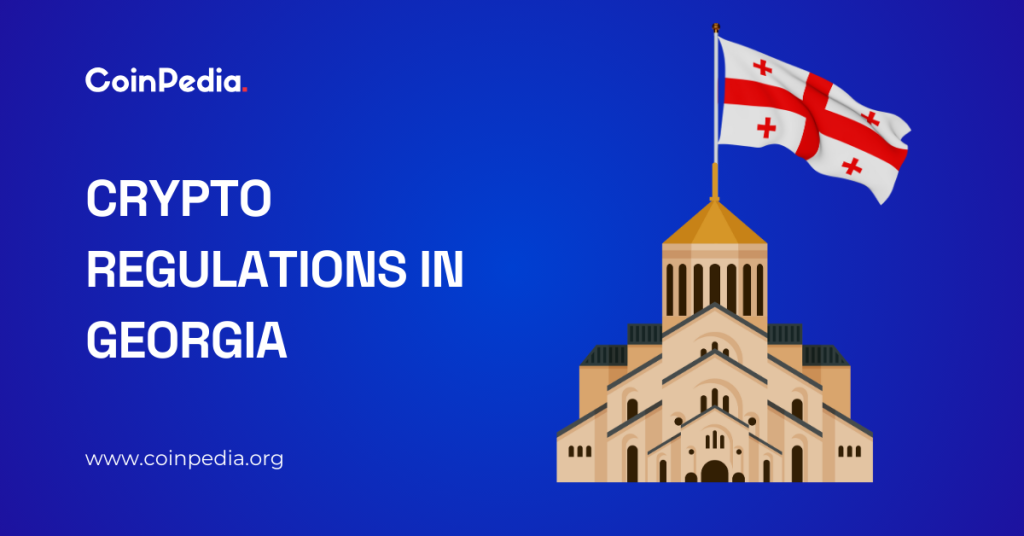
The post Crypto Regulations in Georgia 2024 appeared first on Coinpedia Fintech News
Georgia is a transcontinental nation in Eastern Europe and West Asia. The country has a population of 3.7 million. Its capital is Tbilisi. The country is known for its developing economy. It has a very high Human Development Index. It is considered as one of the most powerful emerging market economies, compared to others of the same economic status. The country’s attitude towards technology, especially fin-tech, is positive in nature. A few policies it recently introduced to regulate the cryptocurrency sector are the best examples of its attitude. Notably, some of these policies are revolutionary in character. Interestingly, the country established these innovative policies at the time its competitor economies remained unsure how to regulate the crypto industry effectively. The present crypto regulation framework in Georgia is truly commendable for its commitment to foster a secure and well-regulated environment for crypto activities. Do you know what makes this framework stand out? It’s difficult to pinpoint a single element. Let me take you through every layer of this amazing framework. Be ready to explore it!
1. Crypto Regulations in Georgia: An Overview
Georgia, though is not a crypto tax haven, offers several things capable of attracting crypto enthusiasts. They include the authority’s welcoming attitude towards the blockchain and cryptocurrency sector, the country’s low electricity costs and its special economic zones, which promise several tax benefits. It seems the Georgian government sees crypto regulations as part of the country’s efforts to harness the benefits of blockchain and crypto, while ensuring investor protection. Recently, an important crypto regulation was introduced. The regulation aligned the country’s crypto policies with international standards set by the Financial Action Task Force – an intergovernmental body constituted to create policies to combat money laundering. A notice regarding this was issued by the National Bank of Georgia as early as June 13, 2023. The new regulation primarily focuses on Virtual Asset Service Providers.
1.1. New Crypto Regulation in Georgia: Everything You Should Know
The new regulation, which took effect on January 1, 2024, has considerably improved the country’s crypto regulation landscape. With the regulation, what the crypto sector received is a clearer legal framework. What constitutes a virtual asset is no longer a complex question, as now the new regulation provides a clear definition on that. As per the regulation, virtual assets are digital forms of value that can be traded or used for payment and investment, but they exclude digital representation of cash, securities and NFTs. The regulation clearly says that virtual assets are not legal tender, but it allows using cryptocurrencies for payments through Virtual Asset Service Providers. As per the regulation, VASPs include entities that exchange virtual assets for currency, store or manage virtual assets, or operate trading platforms and lending services. The regulation stipulates that every VASP must register with the National Bank of Georgia. The newly gained recognition for VSAPs comes at the expense of increased legal obligations for these service providers to prevent money laundering. Now, VASPs have a huge role to play. Maintaining detailed record-keeping and ensuring traceability of transactions involving Virtual Assets are the prominent ones of their prime obligations.
2. Crypto Regulations in Georgia: What’s New
Here the prime developments happened in the Georgian crypto regulation landscape in the recent past.
March 27, 2023: Binance announced the opening of a new blockchain hub in Georgia, aiming to promote crypto adoption and industry education.
April 19, 2023: Gate Pay, a service by Gate.io, partnered with CityPay.io to offer crypto payment options at over 600 merchants in Georgia.
May 31, 2023: Tether invested in CityPay.io, enabling USDT payment in numerous locations across Georgia.
June 28, 2023: Tether signed an MOU with the Georgian government to position the country as a hub of P2P technology.
November 3, 2023: The National Bank of Georgia partnered with Ripple Labs for digital lari CBDC project, using Ripple’s platform for the pilot.
March 19, 2024: The IMF emphasised the need for strong regulation and AML/CFT controls in Georgia, highlighting the importance of managing financial sector risks, including those from virtual assets.
3. Crypto Taxation Framework in Georgia Explained
For an individual crypto trader, Georgia is the best country to live in, because individuals enjoy a 0% capital gains tax on their cryptocurrency profits. Sounds exciting, right? No wonder it is becoming a favourite destination for crypto enthusiasts.
For a registered crypto business, things are a little different, but not as bad as what we see elsewhere in Europe. If you have a registered business in the country, you will face a 15% corporate income tax on your profits, along with a 5% dividend tax when distributing those profits to the owners.
Don’t worry. There is a policy in the country intended to support small businesses. If your business is found eligible for Small Business Status, you can do business paying just a 1% tax on profits.
It’s not easy to get qualified for the status. If the National Bank of Georgia classifies crypto trading as a currency operation, it could disqualify you from SBS benefits. Additionally, there is an annual turnover limit for SBS; exceeding this limit means losing the status.
4. Crypto Mining in Georgia: What You Should Know
Georgia is the favourite destination for crypto miners. Why? What attracts crypto miners to the country is its low electricity costs. As per a survey conducted a few years ago, more than 200,000 crypto miners were operating from the country.
To become a legal crypto miner, a person should have a registered enterprise in the country. If one engages in the crypto mining business, with a registered legal entity, his entity can enjoy the benefit of the country’s commercial electricity tariff.
Crypto mining is not tax free. From income tax to dividend tax, a legal crypto mining business has to pay several taxes. The income tax applicable for this is around 20%. The profit tax is at least 15%, and the dividend tax is nearly 5%.
The businesses operating in the country’s Free Industrial Zones are eligible for tax benefits. Most crypto mining companies enjoy these benefits, as the vast majority of these crypto mining companies operate in special zones, like Tbilisi, Poti and Kutaisi.
5. Timeline of Crypto Regulations in Georgia
2018: The World Bank estimated that around 200,000 people in Georgia were involved in cryptocurrency mining.
2019: Nodar Khaduri, the then Minister of Finance in Georgia, signed a bill introducing taxation for cryptocurrency.
2023: The National Bank of Georgia introduced new regulations for Virtual Asset Service Providers.
2024: The new crypto regulations were implemented. These developments aligned the country with Financial Action Task Force guidelines.
Endnote
As Georgia seeks to align with international standards and pursue EU membership, the country is introducing more stringent financial regulations. The recent recommendations from the IMF highlight the need for stronger controls in the banking and crypto sector, focusing on issues like dollarisation and financial integrity. These developments may bring challenges but also opportunities for the crypto industry in the country. Whether these regulations will stifle growth or strengthen the sector remains to be seen. However, the country’s commitment to international standards will shape its financial landscape, especially its crypto regulation environment. Only time will reveal the character of the impact.
Also Check Out: Crypto Regulations in Puerto Rico 2024

 1 month ago
18
1 month ago
18









 English (US) ·
English (US) ·